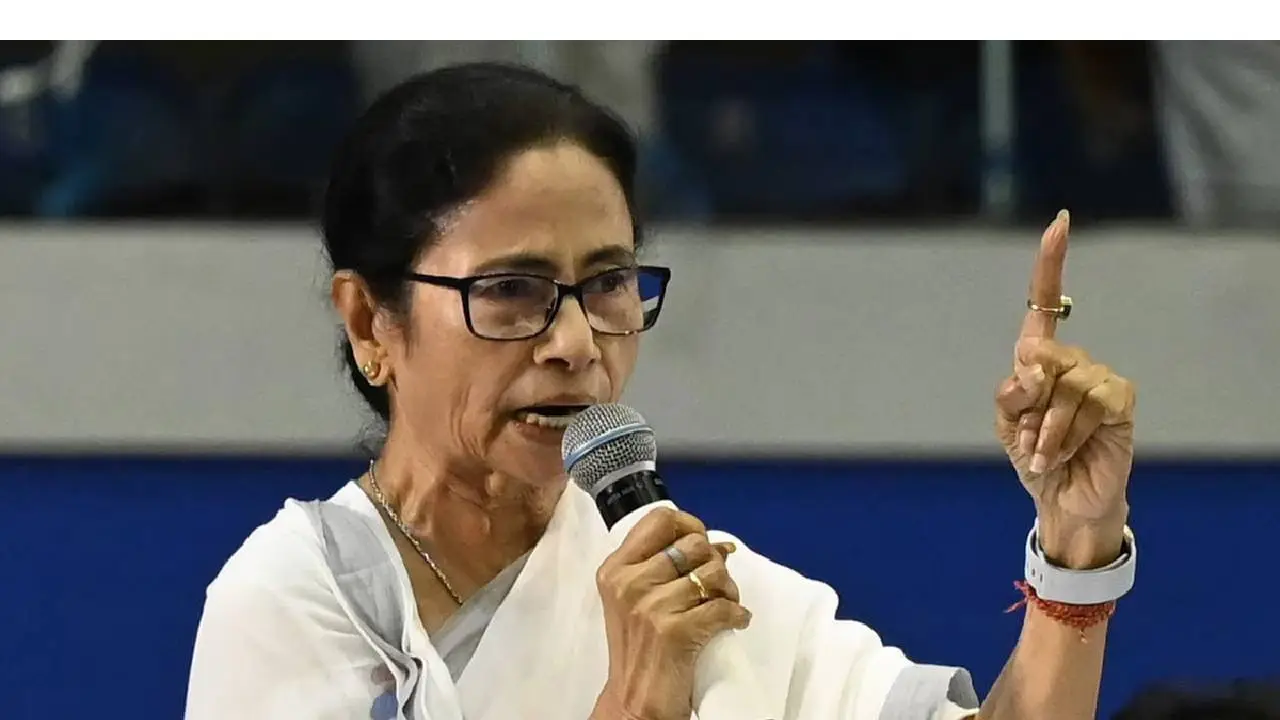
(Credit: OpenAI)
New Delhi: Mamata Banerjee has raised serious objections to the Election Commission’s proposal to hire 1,000 data entry operators and 50 software developers through an external agency for one year. She argued that district-level offices already have efficient professionals handling similar tasks, making such outsourcing unnecessary. According to her, this decision could lead to dependency on private players in sensitive electoral processes. She described the timing of this proposal as questionable. Mamata warned that large outside recruitment may weaken internal systems.
The Chief Minister stated that regional offices have historically appointed their own temporary data entry staff whenever required. She highlighted that these teams are capable of executing SIR and other election-related tasks without external assistance. Mamata questioned why decision-making power is being shifted away from district authorities. She claimed that direct local staffing would ensure better accountability and transparency. She urged maintaining administrative autonomy instead of unnecessary centralisation.
In her letter, Mamata Banerjee hinted that the decision may serve the interests of “a particular political party,” suggesting political pressure behind the recruitment process. She indicated that the tender’s timing and method raise public doubts. According to her, such external operators could be strategically used to influence sensitive data operations. She asked for immediate corrective measures to avoid misuse of the recruitment process. Her communication reflected deep concern over possible bias.
Mamata also objected to the reportedly proposed idea of setting up polling booths within private residential premises. She argued that such locations could restrict equal accessibility for voters and compromise neutrality. According to her, polling stations have traditionally been placed in government or semi-government institutions to maintain fairness. She cautioned that private complexes may unintentionally give advantage to selective communities. Her statement indicated that even slight imbalance could affect public confidence.
The Chief Minister asserted that placing voting centres in private buildings breaks standard guidelines laid by the election authorities. She stressed that such arrangements could disrupt voter privacy and lead to unequal treatment during polling. According to her, public access must remain unbiased in all electoral setups. Mamata requested that decisions adhere strictly to established norms. She claimed that such moves could question procedural legitimacy if not reconsidered.
Banerjee emphasised that the dignity and credibility of the Election Commission must remain intact under all circumstances. She advised caution while making structural changes during election preparations. Mamata urged leadership to ensure impartiality and transparency within the process. Her letter indicated that decisions perceived as politically influenced may damage public trust. She suggested that preserving institutional reputation should supersede all other considerations.
With political attention rising, Mamata requested a prompt explanation from the Election Commission regarding the two issues. She asked for intervention before further steps are taken, to prevent administrative and ethical conflict. Analysts believe this controversy may escalate if clarification is delayed. Her note underlined urgency in resolving concerns around recruitment and polling arrangements. All attention now focuses on the commission’s response to avoid intensifying the dispute.





Copyright © 2026 Top Indian News
